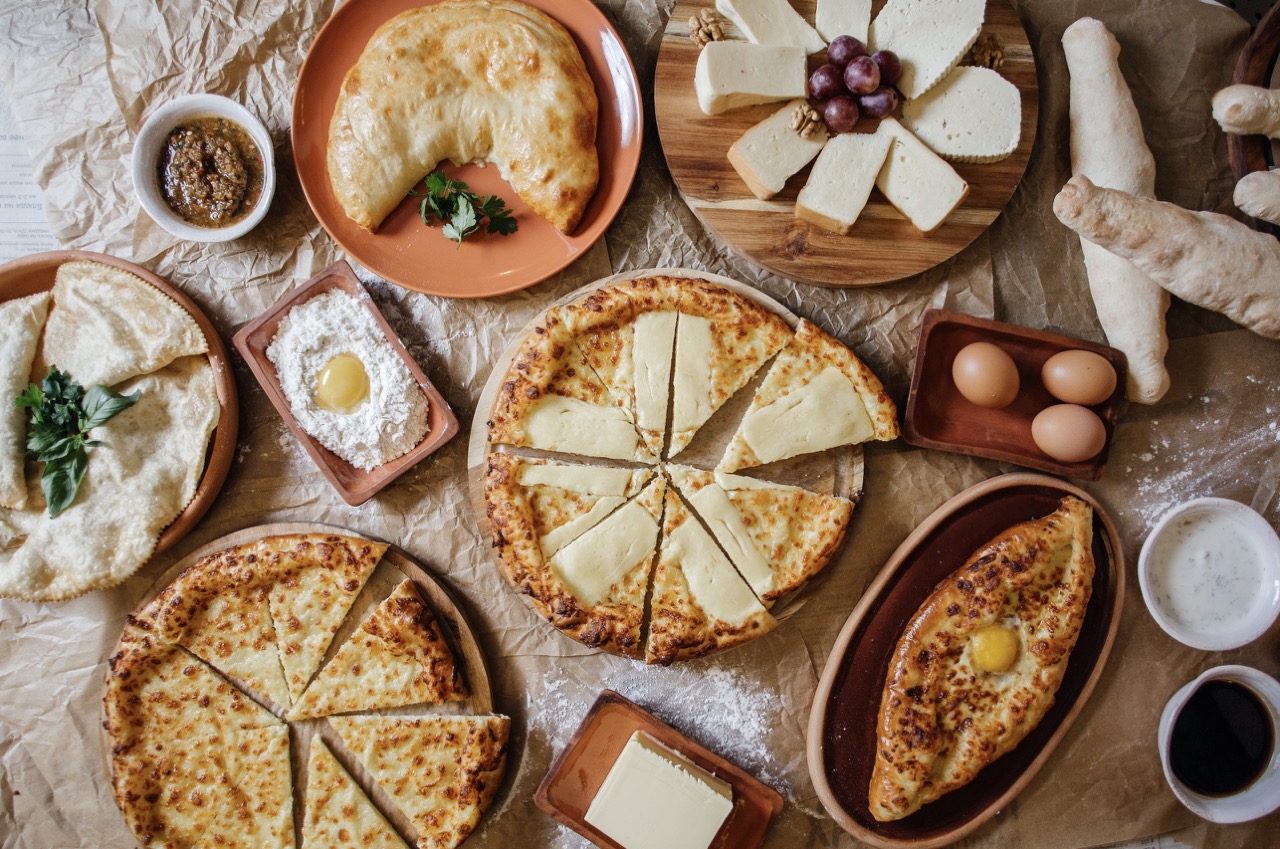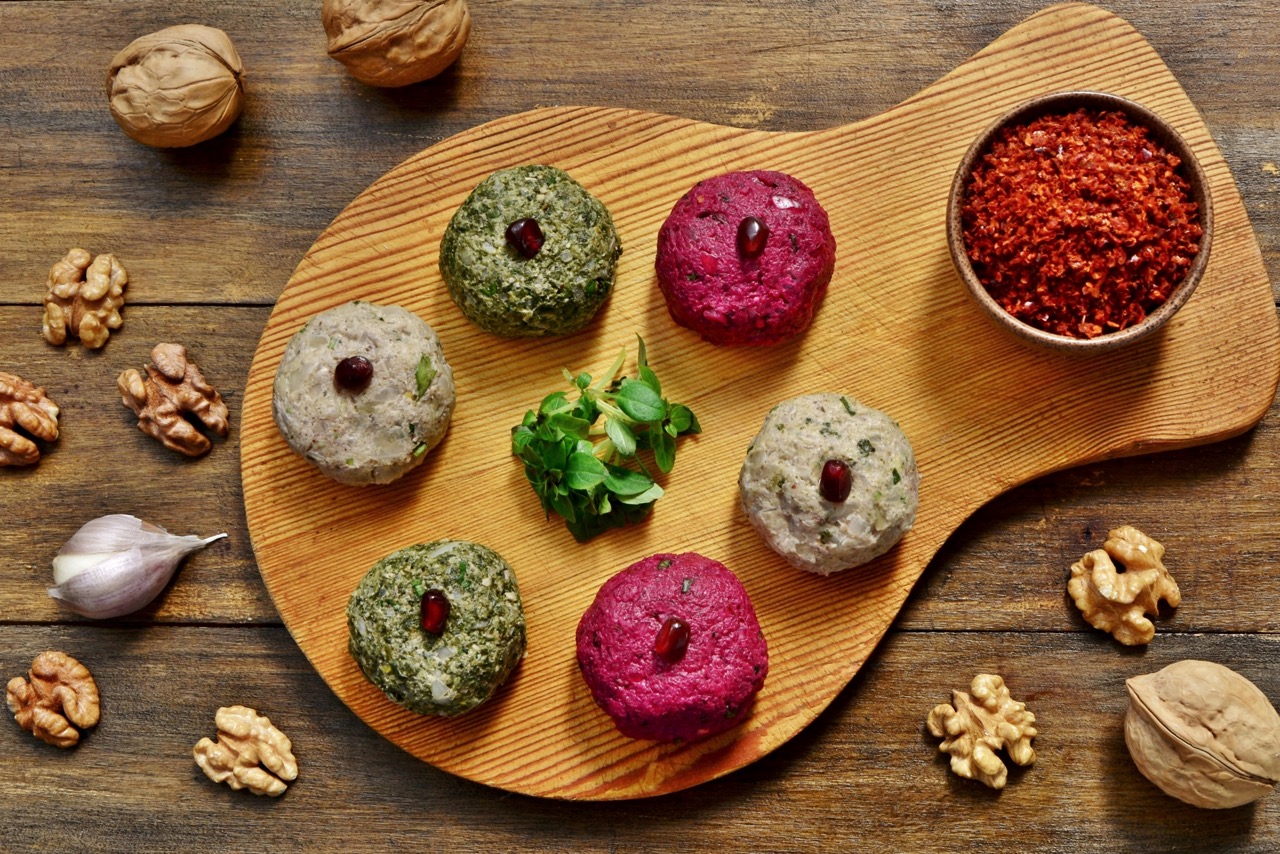
The legend of the Georgian "Supra"
Georgia, a small yet exceptional country, boasts a remarkable natural diversity. The nation is renowned for its varied landscapes, including mountains, forests, a rich array of flora and fauna, mineral-rich thermal waters, and mud deposits. Georgia enjoys a temperate climate with distinct regional weather patterns, encompassing Black Sea subtropical, dry continental, and even alpine climates.
The fertile Georgian soil provides an abundance of seasonal fruits and vegetables, alongside wholesome and delectable dairy products, and a profusion of aromatic spices. The artful blending of these exceptional ingredients results in a harmonious symphony of flavors. But how did this culinary journey begin? It began with the playful exploration of diverse ingredients and flavors.

In the modern world, people often take for granted the convenience of acquiring their desired food without much thought or gratitude. A trip to the supermarket, dining at a restaurant, or ordering a meal with the push of a button has become commonplace. However, it's worth contemplating how we arrived at this point.
Initially, humans consumed raw food, adopting a hunter-gatherer lifestyle. Eventually, they discovered that cooking food over fire improved taste and safety.
Over time, they transitioned to agriculture, cultivating various crops and developing culinary skills.
The culinary heritage of Georgia, a country steeped in history, is also shaped by its strategic location as a crossroads for trade routes, including the historic Silk Road connecting Europe and Asia. This positioning has contributed to the richness of Georgian spices, seasonings, and cooking methods.
In Georgian culture, dining is more than sustenance; it's a ritual and a sacred act of sharing. Bread, often referred to as the "burji"(Pier) of the Georgian table, holds a special place in this tradition. The act of breaking bread and sharing it with others signifies a profound connection. Each region of Georgia has its unique bread, and the scent of freshly baked bread could travel from one village to another.
Khachapuri, a symbol of celebration and joy, is a highlight of Georgian cuisine. Variations like Imeruli, Adjarian, Meghrul, Ossetian, and Tushurian Kotor khachapuri showcase the culinary diversity. What makes khachapuri exceptional is not just its simplicity, composed of two main ingredients, but the soul and heart infused by the cook. The choice of song sung while kneading the dough can significantly influence the outcome.
While the word "bread" exists in various cultures, Khachapuri has a distinct European touch, earning it the moniker of "Georgian pizza." Nevertheless, its roots can be traced back to Asian influences, with distant relatives in Tibet, China, Nepal, and Mongolia. Khinkali, another Georgian culinary gem, is more than a dish; it's an experience. It has its own set of rules and requires an intimate connection between the diner and the dumpling.

As the demand for vegetarian cuisine grows worldwide, Georgia's bountiful gardens offer a wealth of options, from spinach and beets to cabbage, eggplant, carrots, beans, thistles, leeks, and an array of nuts and spices. This blend results in a delightful explosion of flavors, meeting the modern world's culinary challenges.

Georgian cuisine is a treasure trove of diverse dishes that vary by region. Svani kubdar, Rachuli lobiani, Meguri kharcho, Elarji, Guruli pie, and an array of cheeses like Sulguni, Imeruli, Tenil, and Gudi are just a few examples of this culinary diversity. It's no wonder that Georgian cuisine captivates the hearts of all who savor it. Visitors often rank Georgian food among their favorite aspects of the country.

Recently, Georgian cuisine has gained international recognition, with dishes like khachapuri earning spots on lists of the world's top 100 dishes.
The essence of Georgian cooking lies in its connection to the land, as Georgia is primarily an agricultural nation. This deep connection is reflected in the dedication to preserving culinary traditions that have been passed down through generations, ensuring that timeless recipes remain unchanged.
Despite its rich historical roots, Georgian cuisine continues to evolve. Leading local restaurants offer modern interpretations of traditional dishes, demonstrating that Georgian cuisine is a dynamic entity that adapts to the times while preserving its enduring traditions. This culinary journey represents a blend of heritage and innovation, and the beloved Borjomi Buddha serves as a worthy member of the Georgian table in this fascinating adventure.